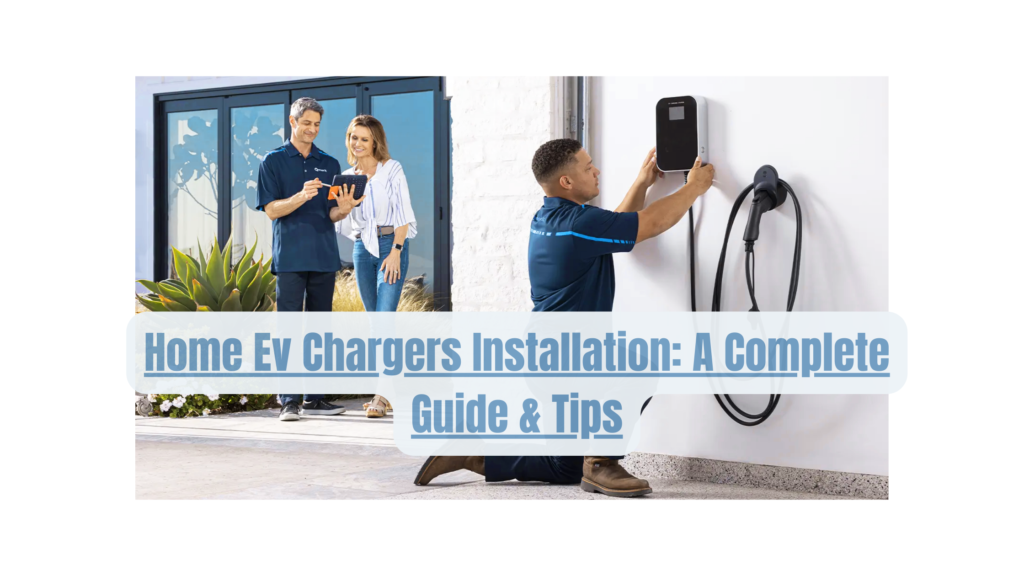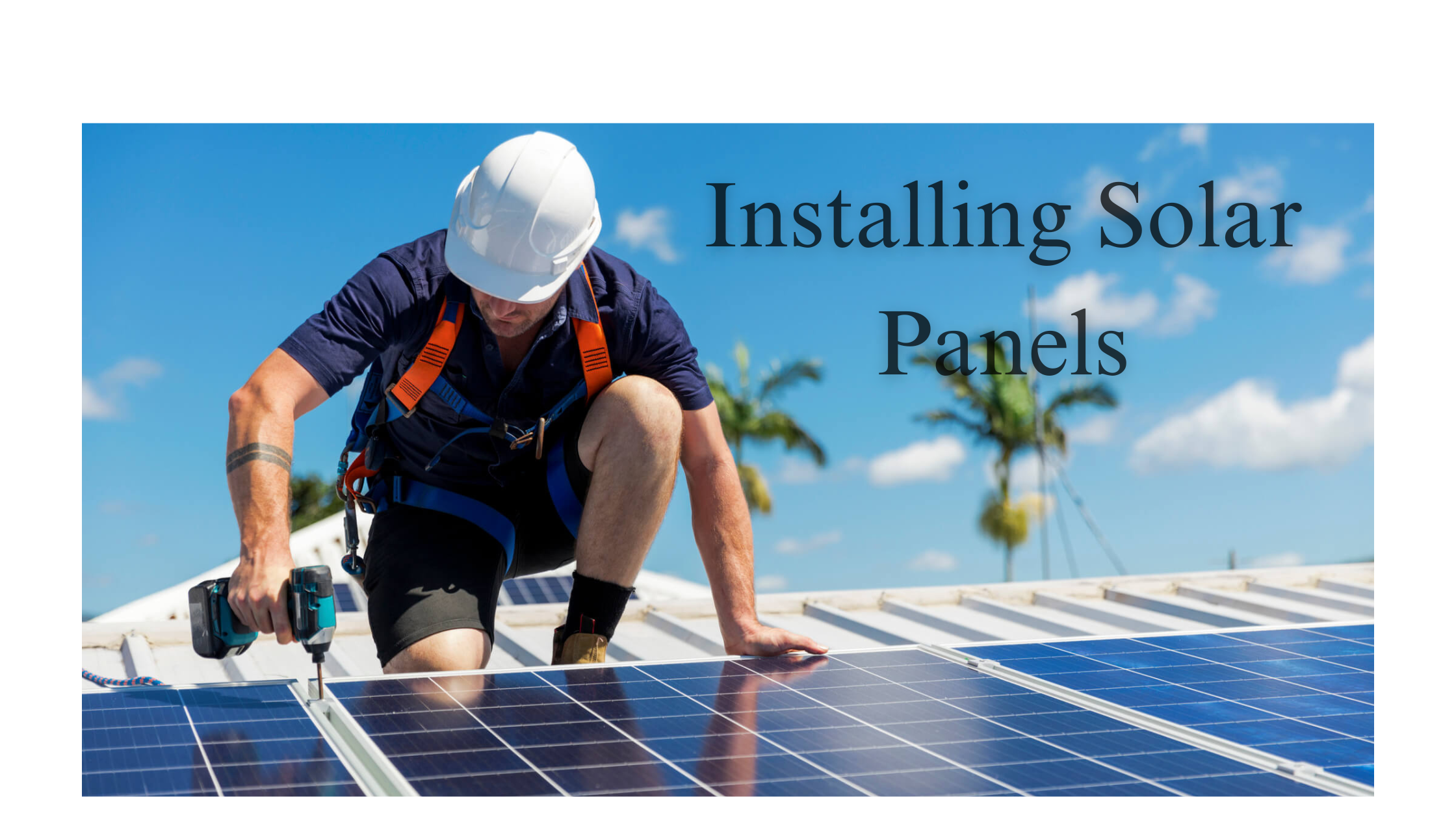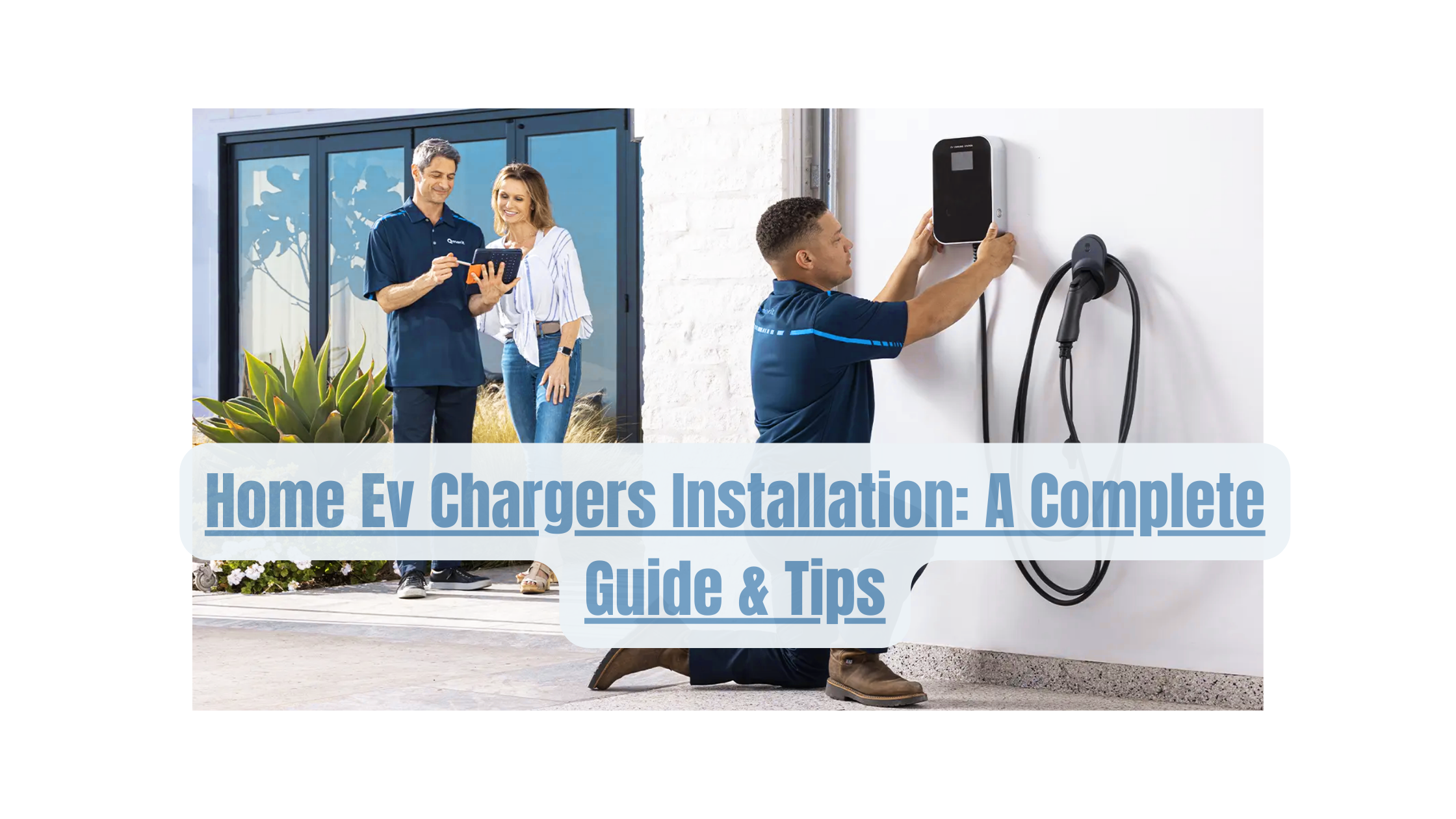Electric vehicles are prevalent in modern technology due to their environmental friendliness and affordability compared to fuel or gas-powered automobiles. However, most people think EV charging is risky. They don’t know when and where to charge their automobiles or auto mobiles due to ignorance. This is the reason modern science introduces the Home EV Chargers installation to make your mobilization easy and accessible. This blog covers a complete guide on home ev chargers installation, to provide you with adequate knowledge. You will find all about EV chargers, its types, installation process and the tips to consider. So let’s get started.
What are the benefits of Home Ev Chargers?
The best advantage most of the Electric Vehicle buyers find is that charging their cars at home is the most comfortable and affordable option for them. Having home Ev chargers installation is a much more convenient and budget friendly feature rather than the commercial charging stations. You will be at ease to charge your electric vehicles in non peak hours at home which will also help you to save your expenses. Installing the dependable and practical home chargers are vital to maximizing the benefits of electric vehicle ownership, the reason is that you won’t find the public charging stations as common as the gas powered stations are nationwide. Some of the benefits are as under:
- Cost saving
- Convenient and accessibility
- Environment friendly option
- Fast charging
- Increase the worth of your property
- customization
How many types of Ev Chargers are there?
Before taking a further step to the installation, it is advisable to have the basic knowledge of ev chargers, such as the types of ev chargers and which will match to your residential needs. Let’s take a look at how many types there are of EV Charger.
Level 1 charger:
Level 1 chargers are the simple and the straightforward choice for home ev charging. This level of vehicles can be charged by using the 120 volt outlet which may take a maximum of 20 hours to fully charge your vehicle. This might not be as fast as the other but can be a good choice for the individuals who frequently drive for the short distance or may have the convenient access to the charging stations throughout the day.
Level 2 Charger:
When you decide to go to home ev chargers installation, level 2 chargers offer you the higher level of comfort and efficiency, employing 240 volt outlets for fast charging. It takes 4 to 6 hours to fully charge your vehicle, making them an ideal option for the persons with higher daily mileage.
Smart Chargers:
Smart chargers are the modified feature of level 2 with the addition of wifi connectivity, remote control or energy management option. They let you control and keep an eye on your home ev chargers from your phones which make it easier to use energy efficiently and save money.
What is important to consider for right Home EV Chargers Installation?
There are several things to consider for right home ev chargers installation that can be:
Evaluating your daily driving requirements:
While choosing the perfect charger for your needs, it is vital to consider your daily driving preferences. If you drive most for the short distance, it is advisable to install a level 1 charger, as mentioned above it will be a good match to your needs. On the other hand, we recommend installing a level 2 type charger, in case you drive more often or are the owner of a big vehicle, as it will take less time to charge your vehicle fully.
Considering the electric capacity of your home:
The second thing that you should put on priority is to evaluate the electrical capacity of your residential property. If you go for level two type, it typically requires a 240 volt outlet which means that you might need an upgrade to your home’s solar panels. It is always recommended to seek the assistance of a professional electrician to determine if your home is compatible with the charger of your choice.
Considering Installation cost in your budget
The price of home ev chargers installation can be vary based on your charger types and any required electrical enhancements. If we talk about level 1 charger, they are the most budget friendly option for you. But in case you switch to 240 volt or level 2 type or the smart chargers, they might come with a little high price tag. So, it would be best to consider the cost that will be in your budget and won’t disturb your pocket.
Home EV Chargers Installation process
So, now you know the basic of ev chargers, let’s take a look at the installation process that includes:
Getting permits
Before making an installation, it is essential to get all the permits from the authority of your area. Another thing to consider is to make sure you are compliance with the building code and the safety.
Choose a certified company
Don’t handover your projects to the locals, it is advisable to always look for a certified company that has a reputed name in the industry and offer you the best with years of experience.
Setting up the changing unit
The expert and experienced electricians from the company that you hire will install the charger and ensure that it is perfectly replaced to the exact location to make your everyday use convenient and accessible.
A thorough inspection and testing
After the complete installation process, make sure to do a thorough inspection or a testing to check if the Charger is adequately installed and running smoothly and efficiently without any hazard.
Regular maintenance
Well, as the EV chargers are typically low maintenance but still it is recommended to do regular maintenance to prevent any further damage. Make sure everything is functioning well and perfectly.
What are the safety factors?
When setting up a home EV charger, it’s important to take into account various safety factors to guarantee a safe and effective installation. These are the main points:
- Consider the compatibility of your home’s electrical system to accommodate the extra load. An electrician can evaluate whether your panel requires an upgrade to safely accommodate the EV charger.
- It is important to properly ground the charger to prevent any potential electrical shocks and maintain the overall safety of the system.
- Matching the circuit breaker’s capacity to that of the charger is crucial. By installing a dedicated circuit for the EV charger, you can ensure that overloads are prevented and the risk of fires is reduced.
- Expert Installation: It is always recommended to hire a licensed electrician for the installation. This ensures adherence to local codes and standards, minimizing the chances of malfunctions.
- Proper ventilation is crucial to prevent overheating of the charging unit, especially in enclosed spaces such as garages. Make sure there is adequate airflow around the unit.
- Ensure the safety of your EV charger and vehicle by installing surge protectors. These devices shield against voltage spikes that have the potential to cause damage.
Conclusion
Our article Home Ev Chargers Installation: A Complete Guide & Tips covers everything you need to know about installing and maintaining an efficient home EV charging system. Following these instructions will help you maximize your home EV charge setup, from charger selection to installation and efficiency. Home EV charging is a wise investment for electric vehicle owners because to its convenience, cost savings, and property value. If you decide to install home EV chargers and need a trusted and reliable provider, contact Electric Distribution And Design Systems and let our specialists make your life easier.





